Comparison Worksheets for 3-Year-Olds
17 filtered results
-
From - To
Elevate your little one's learning journey with our meticulously crafted Comparison Worksheets for 3-Year-Olds! Tailored specifically to the curious minds of preschoolers, these engaging worksheets are designed to introduce the fundamental concept of comparison. Through a variety of fun, age-appropriate activities, your child will explore and understand differences and similarities, fostering critical thinking skills from an early age. Our Comparison Worksheets are perfect for parents and educators seeking to nurture a love for learning through interactive and enjoyable exercises. Watch as your 3-year-old embarks on an educational adventure, mastering the basics of comparison with confidence and joy!
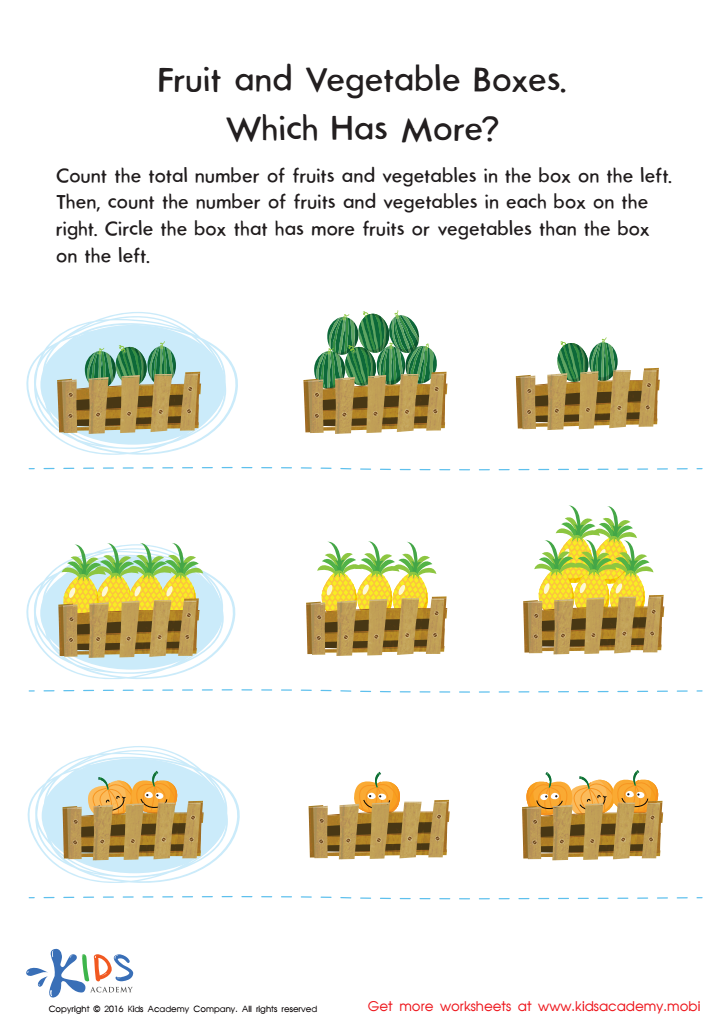

Which Has More? Size Worksheet
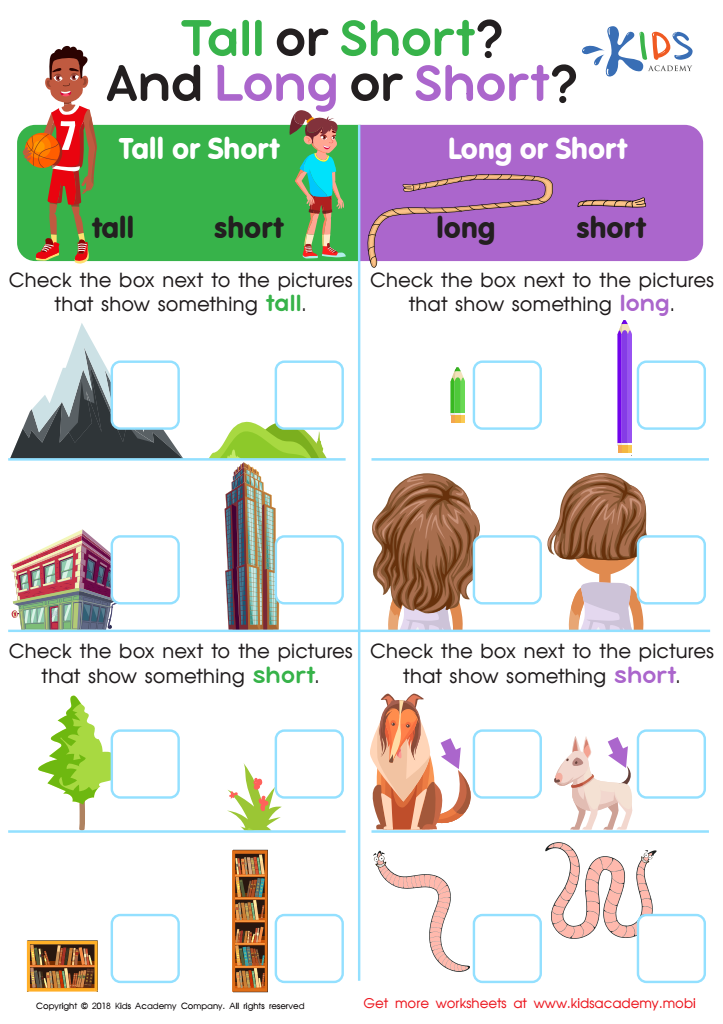

Tall or Short and Long or Short? Worksheet
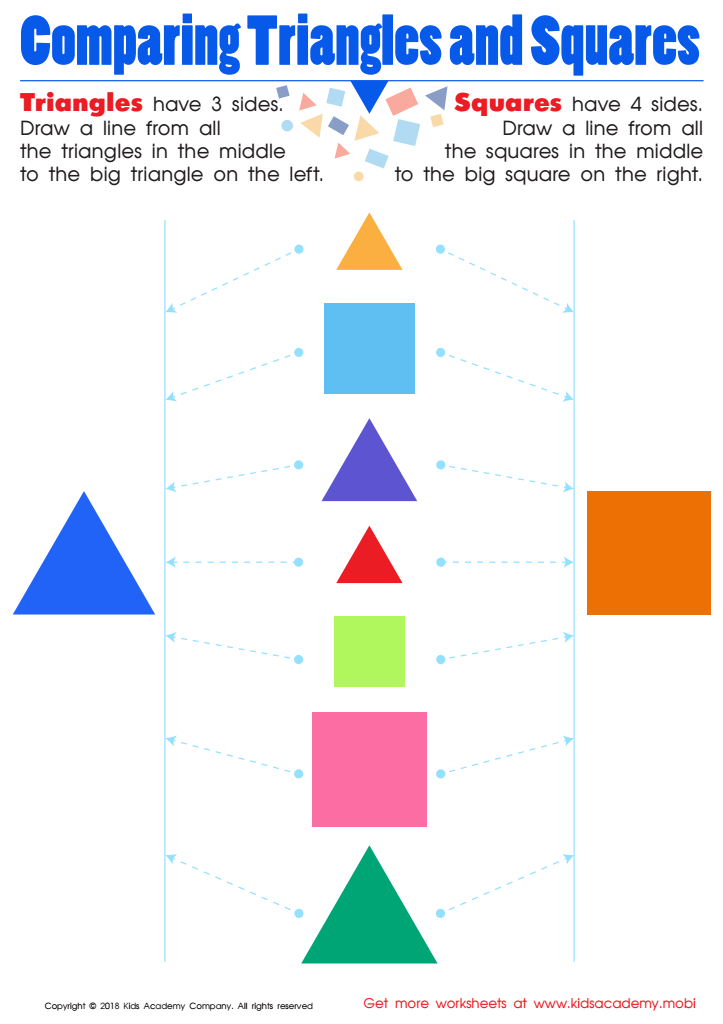

Comparing Triangles Squares Worksheet
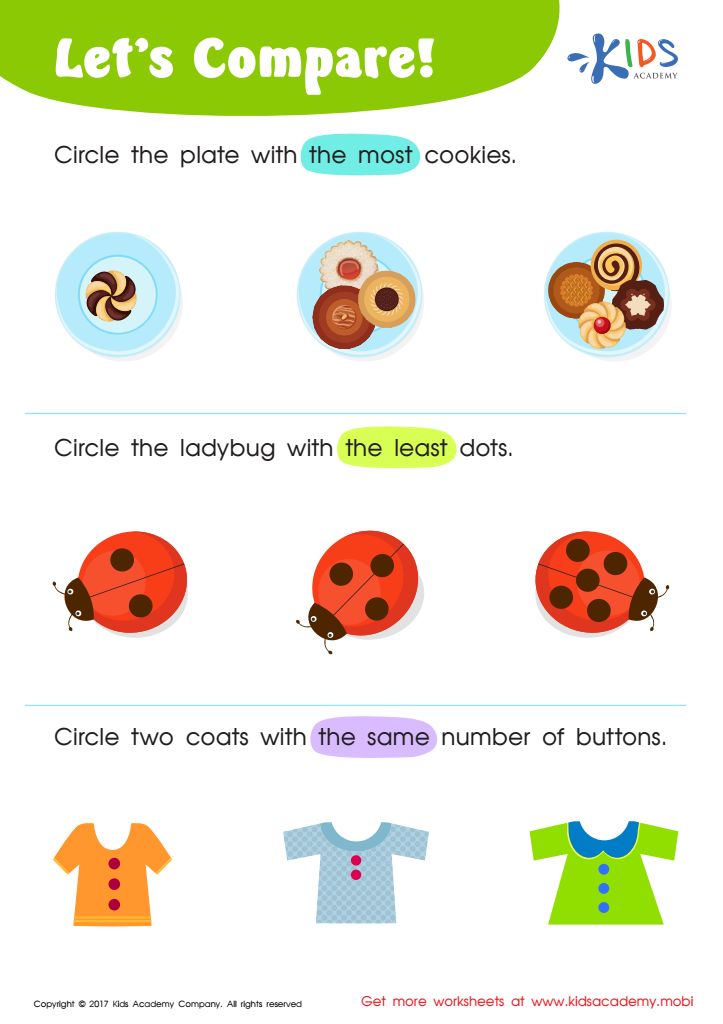

Matching: Classifying Toys by Size Worksheet


Matching: Classifying Toys by Size Worksheet
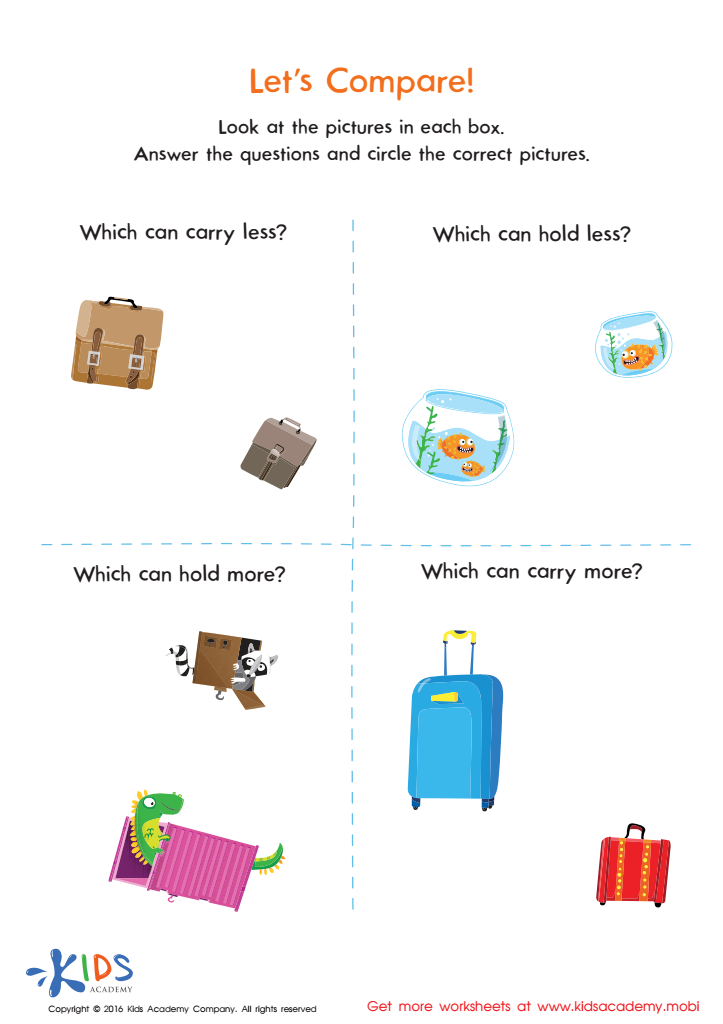

Let's Compare Worksheet: Big or Small
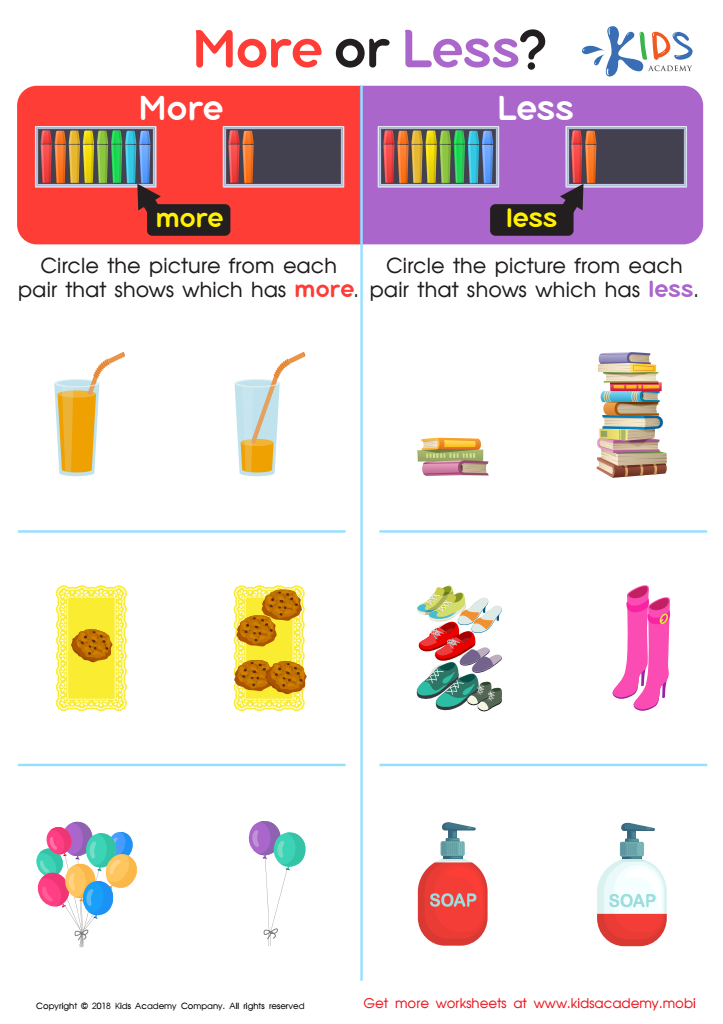

More or Less? Worksheet
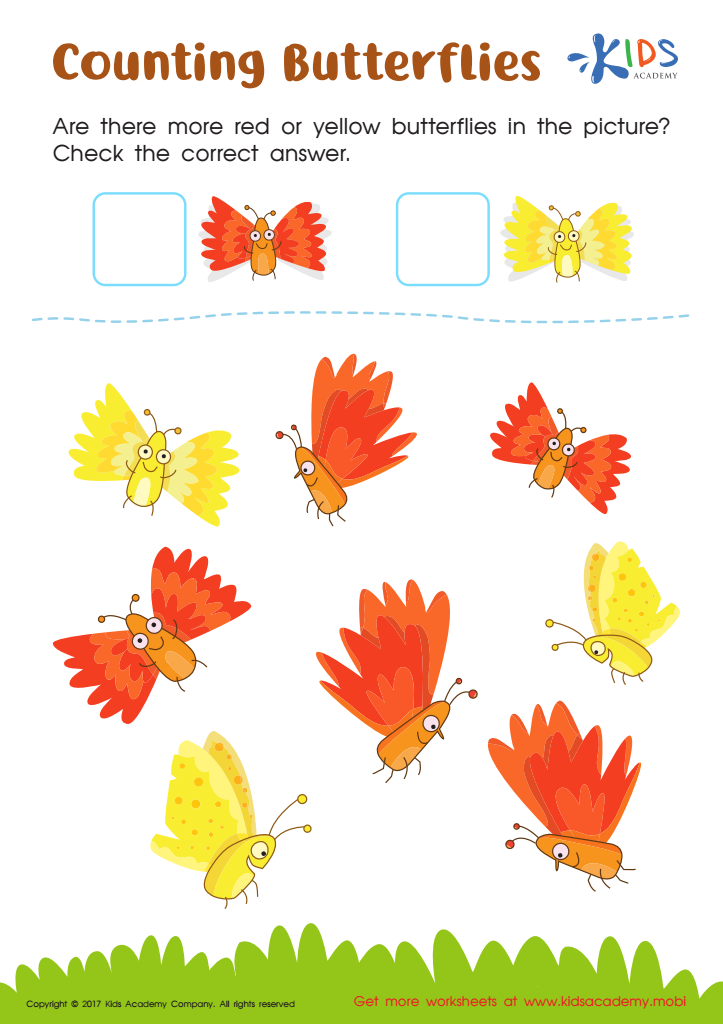

Counting Butterflies Worksheet
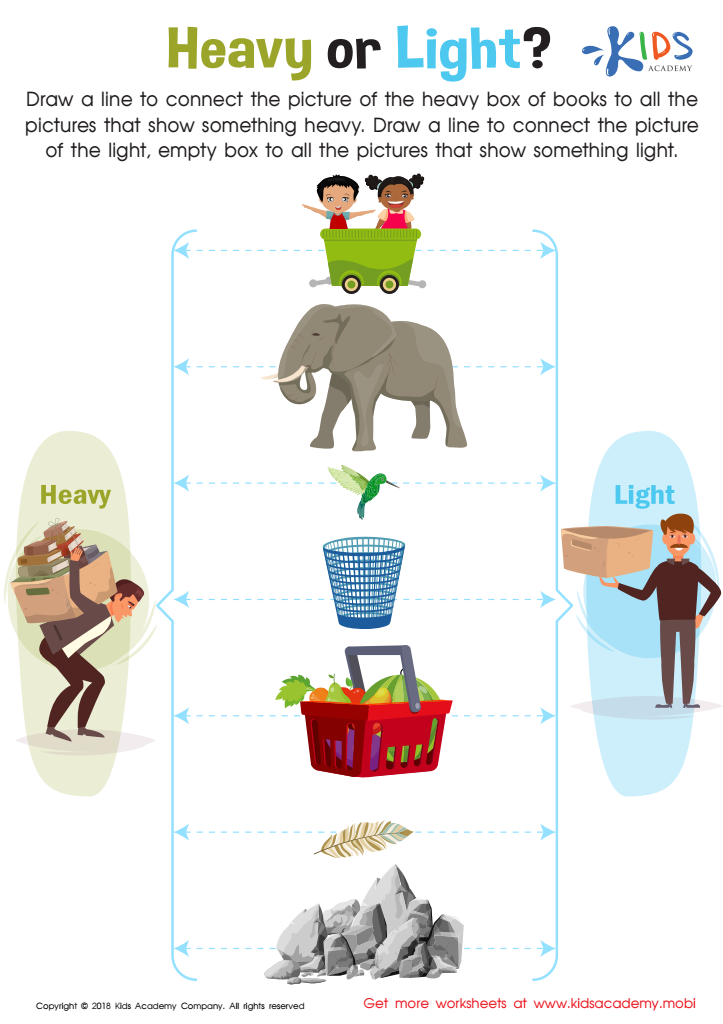

Heavy or Light? Worksheet
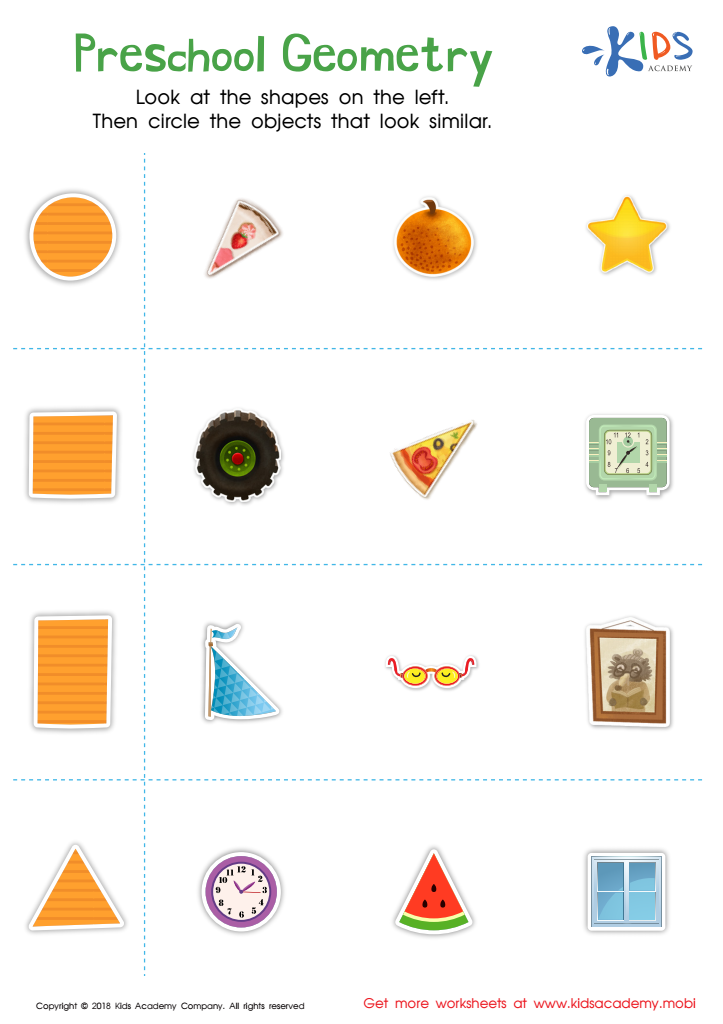

Preschool Geometry Worksheet
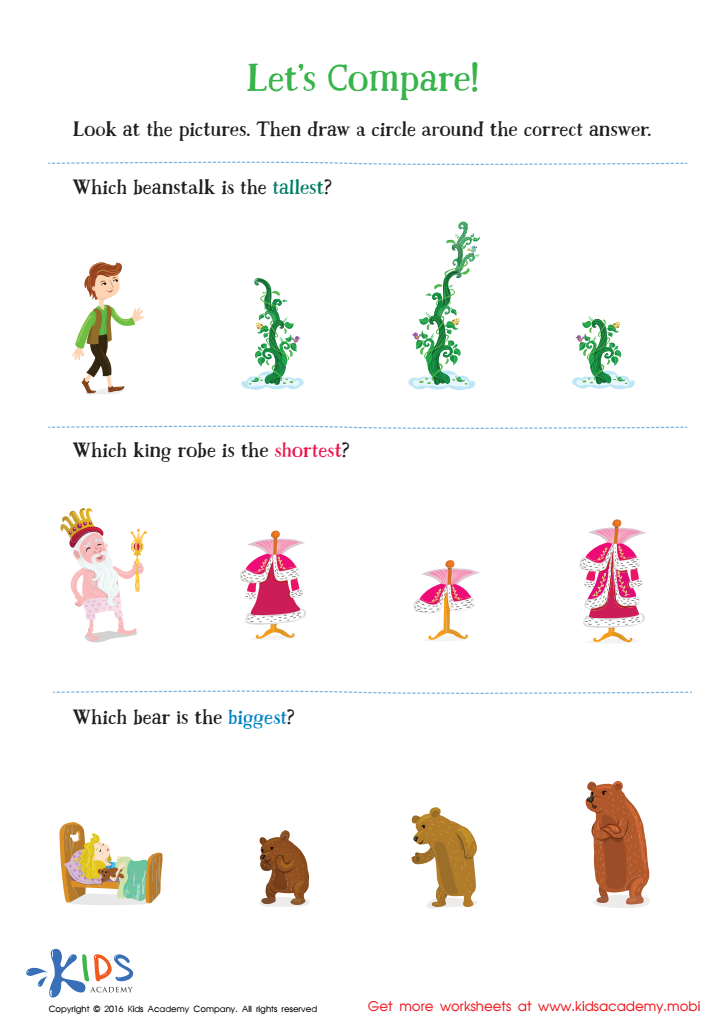

Fairy Tale Worksheet: Let's Compare
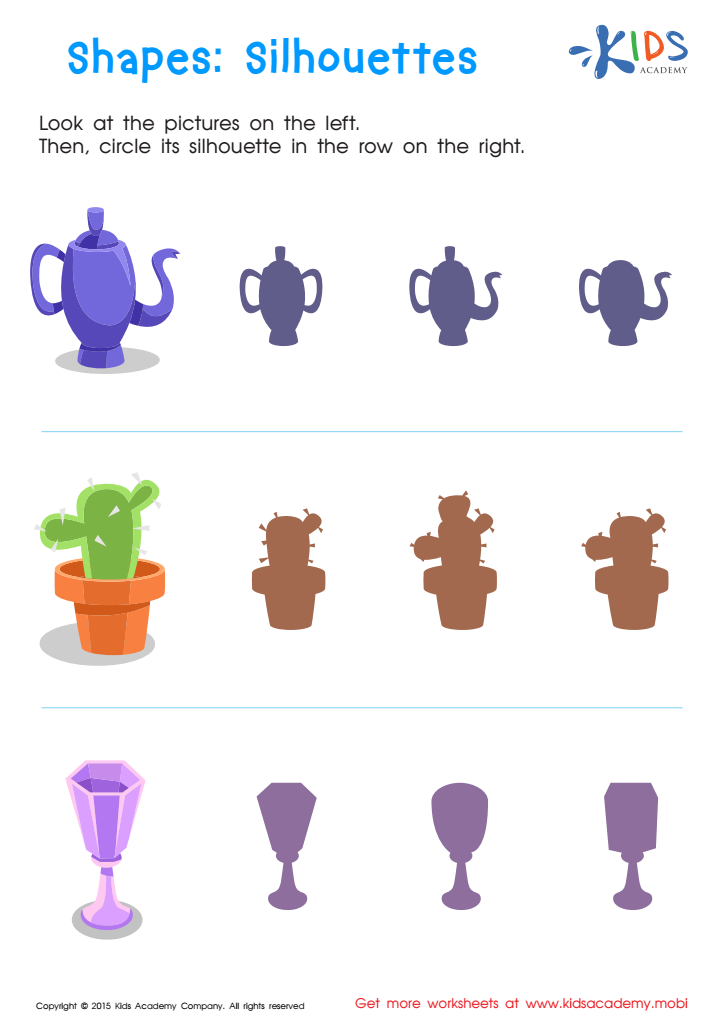

Silhouettes – Shapes Worksheet
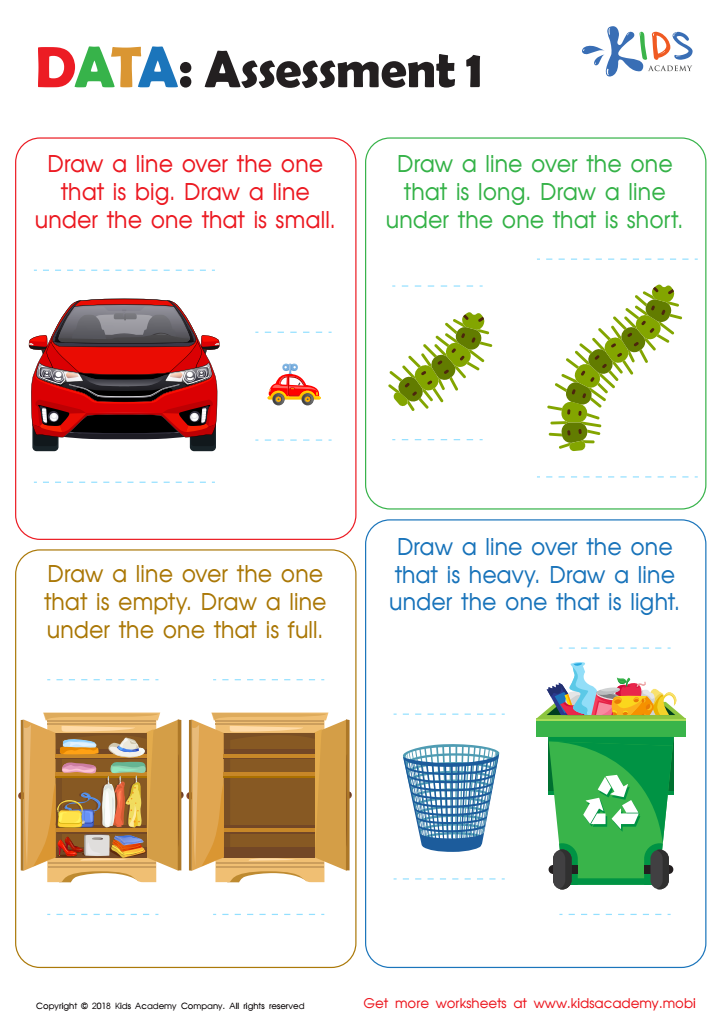

Data: Assessment 1 Worksheet
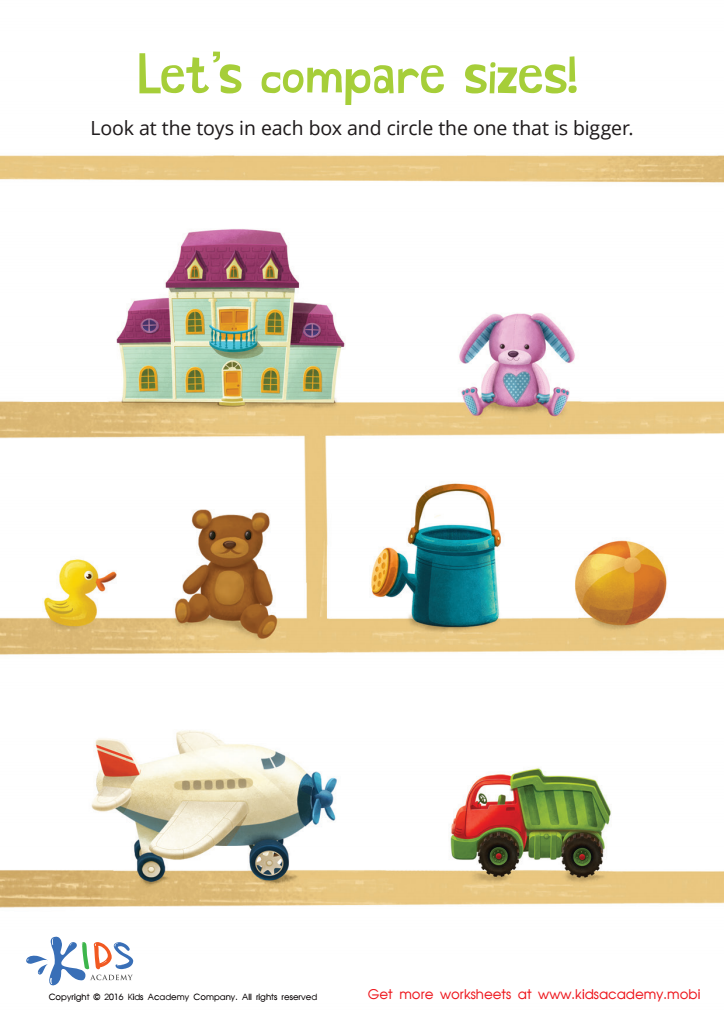

Classifying by Size Sorting Worksheet
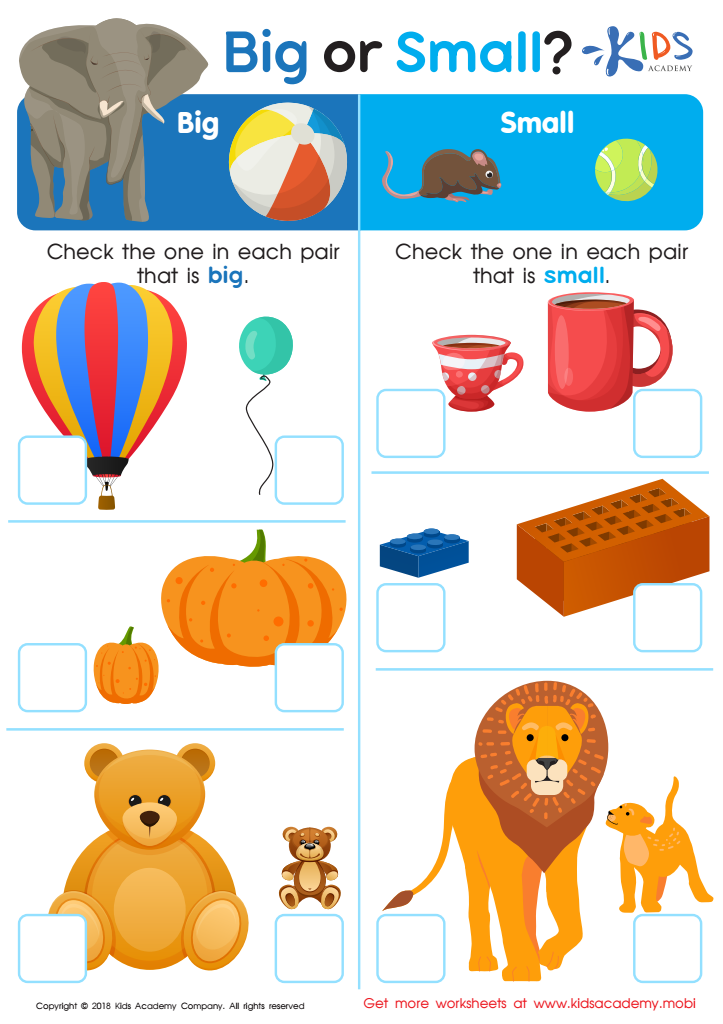

Big or Small? Worksheet
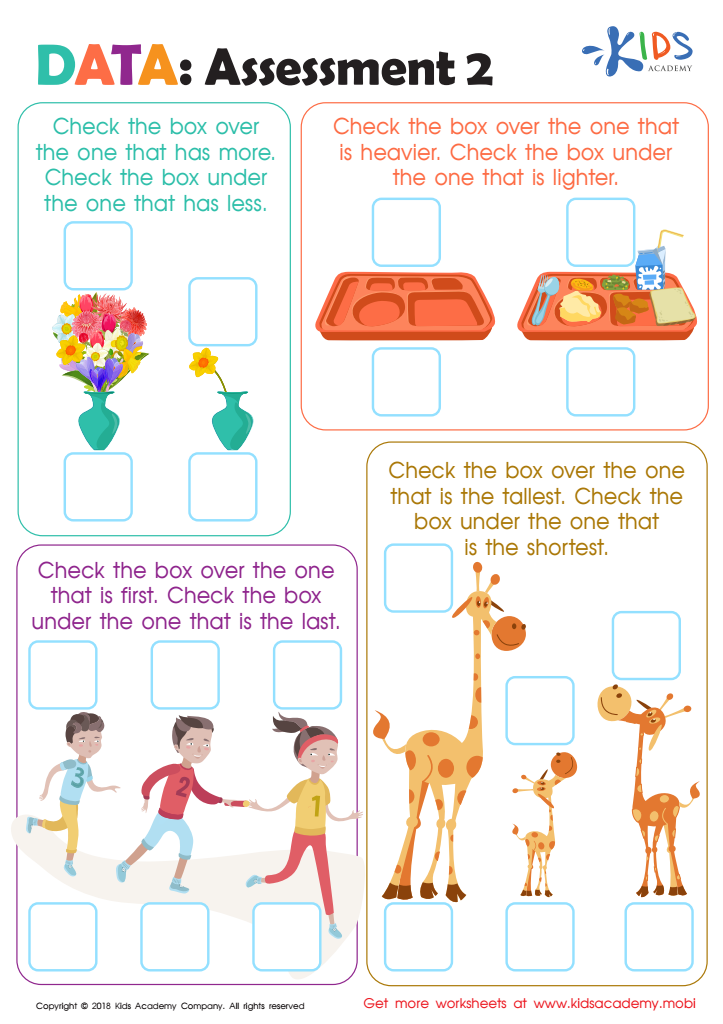

Data: Assessment 2 Worksheet
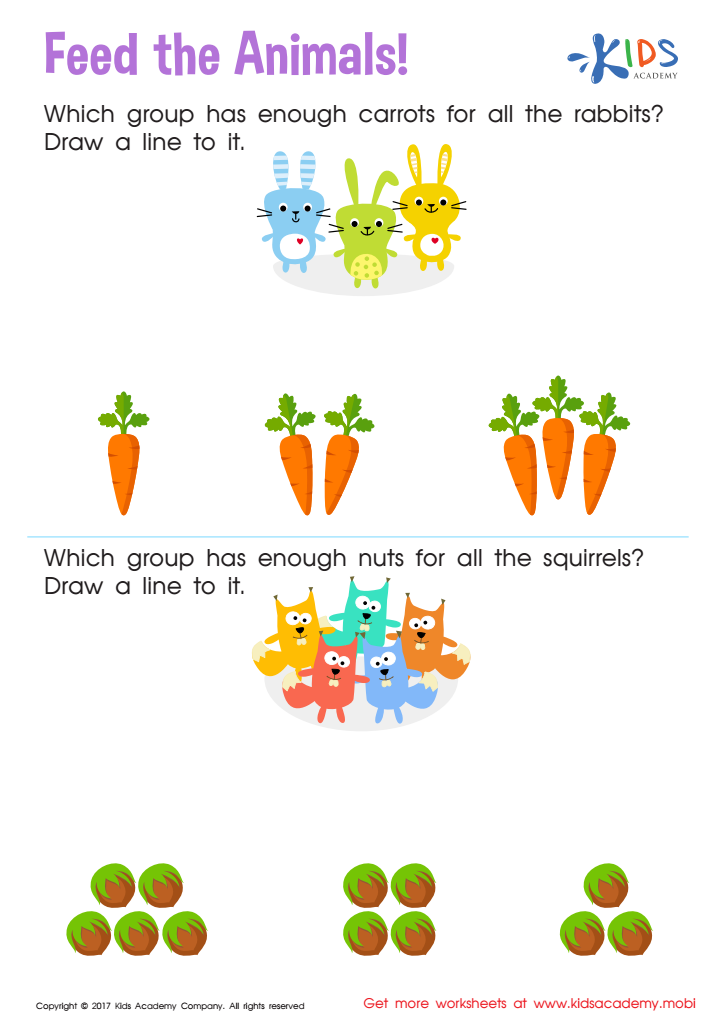

Count and Match: Feed the Animals Worksheet
Comparison worksheets for 3-year-olds serve as a foundational tool in early childhood education, offering a myriad of benefits designed to enhance learning and development. These worksheets are not just about distinguishing between big and small or tall and short; they are a gateway to understanding the world around them through comparison.
Firstly, engaging with comparison worksheets helps 3-year-olds develop critical thinking skills. By comparing objects, children learn to observe details and make connections, laying the groundwork for problem-solving and analytical thinking. These skills are essential for future learning across all subjects.
Moreover, comparison activities are instrumental in boosting language development. As children describe how items are similar or different, they expand their vocabulary and improve their communication skills. This early introduction to descriptive language and concepts of comparison enriches their ability to express thoughts and ideas more effectively.
Additionally, comparison worksheets for 3-year-olds encourage the development of mathematical concepts. Understanding comparison is a key step toward grasping more complex mathematical ideas, such as measurement and quantity. Early exposure to these concepts through comparison helps children become more comfortable and confident with math as they progress in their education.
Lastly, worksheets designed for comparison offer a fun and interactive way for children to learn. They stimulate curiosity and foster a love for learning, which is crucial at this developmental stage. By making learning enjoyable, we pave the way for lifelong learners.
In summary, comparison worksheets for 3-year-olds are more than just educational tools—they are building blocks for critical thinking, language development, mathematical understanding, and an enduring love for learning.
 Assign to My Students
Assign to My Students






















